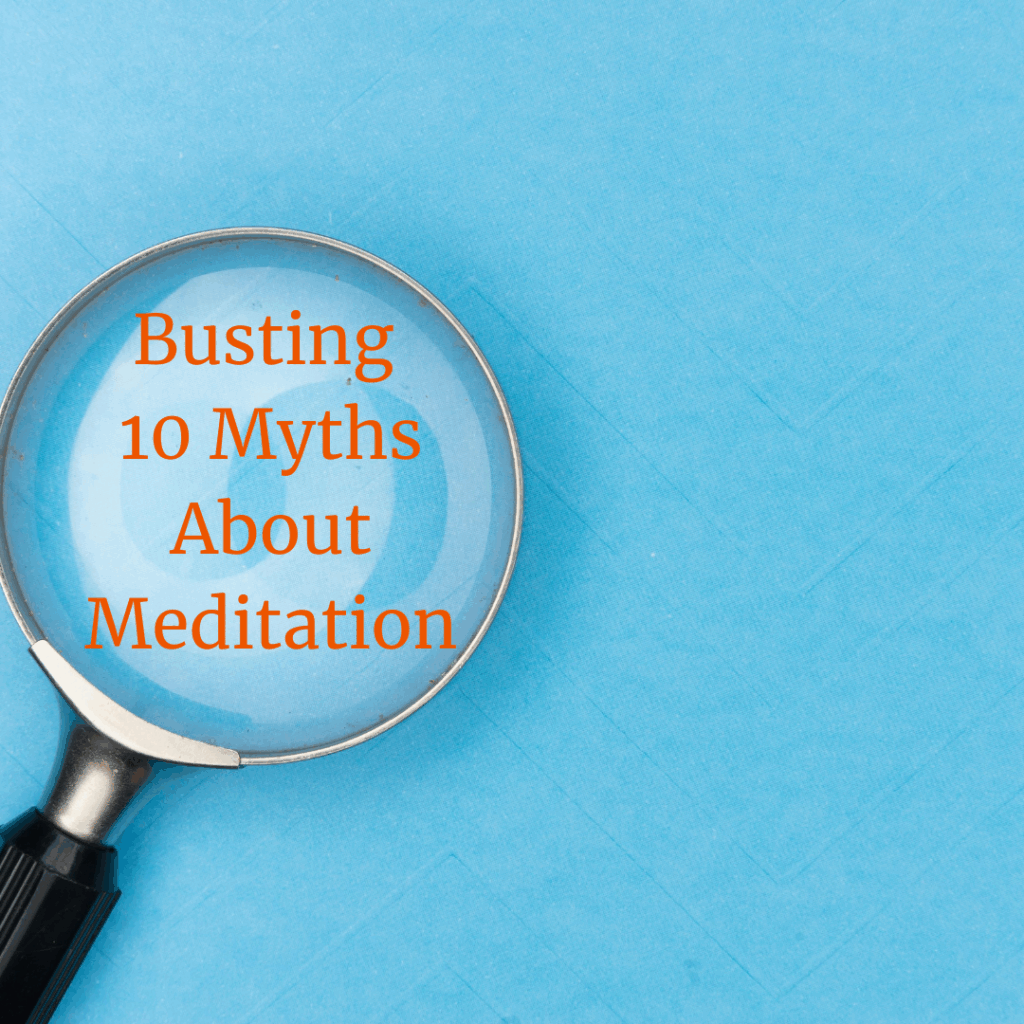
Myth: Meditation is just taking deep breaths.
Maybe. But let’s take a step back: The general definition of meditation is focusing the mind on specific subject with a goal. So if someone is taking 5 or 10 deep breaths focusing on the sensation and movement of the breath with the goal to feel calm, then sure, this can be considered meditation.
Myth: Meditation is spiritual.
It could be. In modern times we learned about Meditation from Buddhist and Hindu philosophy but in reality meditation, can be found in every religion. Prayers are actually considered a form of meditation. With that said, the practice of focusing the mind and being present is a not religious or spiritual. It is a normal human function.
Myth: There’s a right way and wrong way to meditate.
Yes and no. It depends on what you are doing to meditate. If you are having a drink to dull the senses while watching TV to numb the mind. That is not meditation. If you are taking time to focus on your breath to relax, or focus on your mind on practicing piano, that can be a form of meditation. The point of meditation is to be present and focused the mind on specific subject.
Myth: I have to be still to meditate.
Not at all. But when you are starting something new, you want to remove as many distractions as possible, hence meditation is often taught seated. But once you are more comfortable and familiar with it, then feel free to take it out on the road.
I have been practicing for over 25 years and my meditation practice has changed. While I still enjoy and practice seated meditation, I can make my yoga practice very meditative. The point is being fully present, and aware of the body, the mind, the breath and the surrounding.
Myth: If I meditate, I will stop my mind from wandering.
Sure if you are living in a cave for 20 something years with no distractions whatsoever.
But if you are like many of us, with jobs, relationships, bills and taxes, I promise you, you will mind will wander. And that is ok.
In mindfulness meditation, you recognize when it wanders and bring it back to your object of focus, over and over and over. And here is what is actually happening:
You are working on your focus and concentration
You learn of what has been occupying you, mentally, emotionally and physically. When you become aware of it, then you can take an action to address it, but first you have to be aware of it and acknowledge it.
Myth: I am not good at meditating.
There are 2 parts to my answer:
Nobody is good at meditating; it is a practice. Think of it like building muscles, not for the body but for the mind. If you are practicing mindfulness meditation, you show up every day and you watch what is happening at that moment in time. Your mind will wander and you bring it back to your breath if that is your focus subject and over and over and over.
Saying that you are not good at it, means that you have some expectations of shutting off your mind. That is not realistic expectation. What you need to celebrate, not your mind wandering, but you catching your mind wandering. The mere fact of catching the mind wandering is your success of practicing Mindful meditation.
Myth: I should always feel better after meditating.
The word “should” puts lots of pressure and expectations on the experience. Meditation is a practice of focus and concentration. If you are practicing Tranquil meditation with focus on the breath and being present, hopeffully you will feel a bit calmer.
Now if you are practicing Mindfulness meditation, you are to sit as watcher and let whatever experiences you are having, come and go without you judging them or control them, and “should” holds both expectations and judgement which take away from the experience.
Myth: I have to close my eyes to meditate.
Closing the eyes is personal preference.
Some people like to close the eyes to help them go inward and lessen the distractions. While for others, closing the eyes could cause dizziness , so it would be best if they open their eyes and focus on the floor couple of feet in front of them.
There are practices such as Dzogchen meditation where you sit there with eyes open to just be in awareness.
Myth: Meditation will make me sleepy.
That is great. I used to fall asleep for the first 2 years of my practice. All what that means is your body needed sleep and you are finally noticing. After sometime, your mindfulness practice will change as you buid the habit of noticing without judgement and expectations.
Myth: Why the focus on the breath is mentioned a lot in meditation
Breath is king. What that means is your breath can help you manage your thoughts and your emotions. To become intimate with your breath, you become intimate with your thoughts, emotions and your body. We breath differently when we are happy, sad, angry, scared, anxious etc.


